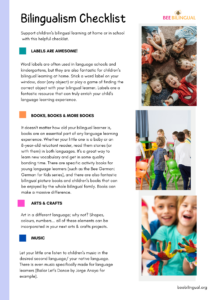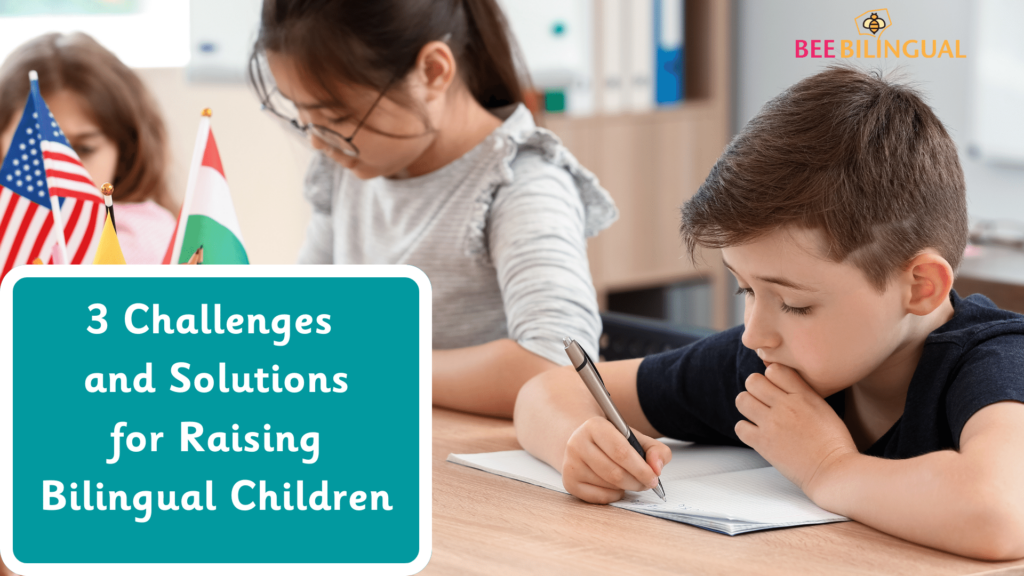When raising bilingual children, parents may face many challenges. Often, it is difficult to ensure that children are exposed to both languages regularly and continuously, especially if only one parent speaks the language. Additionally, it can be difficult to motivate children to learn and maintain their second language if they are not immersed in it regularly. Here, we will discuss three common challenges faced by parents raising bilingual children and provide potential solutions.
Common Bilingualism Challenges
1. Lack of consistency
Language exposure (especially bilingual exposure) should be consistent! It’s important to nurture both languages. One of the main challenges associated with raising bilingual children is ensuring that they have regular access to both languages. But yes, that’s easier said than done. Repetition and routines are especially useful! Create routines for the use of both languages and stick to them as much as possible. And, if possible, encourage the whole family to participate.
Make it fun! It doesn’t have to be a school-like activity; you could play games or cook a delicious meal with your bilingual learner. This way, new words and phrases are easier to remember.
Likewise, your family and communities both play an important role in helping children learn a language. Children who hear a variety of people speaking their language in different settings are more likely to learn it faster and retain it better. So look for opportunities to expose your children to languages outside the home. You could try a language class or a youth program, for example.
When raising a bilingual child, it is also important to focus on what your child can do rather than what they cannot do. Acknowledge their progress and encourage them to use both languages. Celebrate small successes, like when your child says a new word or phrase. We are all different; everybody learns and acquires language differently. Give your kids the space and time they need to learn, and avoid comparing them to others.

Take a look at our Bilingualism Checklist. You will find many useful tips and tricks to help you raise bilingual children.
2. Only one parent can speak it
If only one parent speaks the language, it can be difficult to provide adequate language input for a child. You have to get creative! You could adopt the one-parent-one- language” method, where one parent speaks only the language they know and the other parent speaks the other language. Of course, you could also create your very own system. It’s all about trial and error and seeing what works best for your family! Don’t forget about other ways of exposing your child to the language. Consider watching movies and TV shows in the language or utilising online resources such as YouTube videos and digital learning tools. Print out worksheets and read books with your child in your language. Another important aspect is culture. Create a strong cultural connection for your child through music, dance, food, books…. Talk about your family, your childhood, what is different, what is the same, etc. Find a language teacher or a tutor, or even native speaking friends and family if possible.
3. Limited access to resources
This is where Bee Bilingual can help. We provide an online platform that allows parents to access educational blog posts and entertaining activities in all languages. It’s a project designed to help families on their bilingual journey. We are constantly working on adding more content and activities to our platform.
We know how difficult it can be to find good resources online. Have you taken a look at our “Free Resources” section?
Of course, these are just three of the many issues that bilingual families may face. We want to emphasise that it is normal to feel overwhelmed. Bee Bilingual is here to provide you with the support and guidance needed at each stage of your journey.
Navigating the world of bilingualism can be a difficult task, but the rewards and benefits that come with it make it worth it. Remember to keep an open mind and to trust yourself and your children during this process. We are all capable of learning two or more languages!


